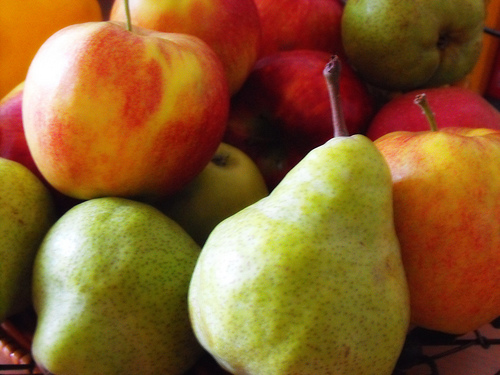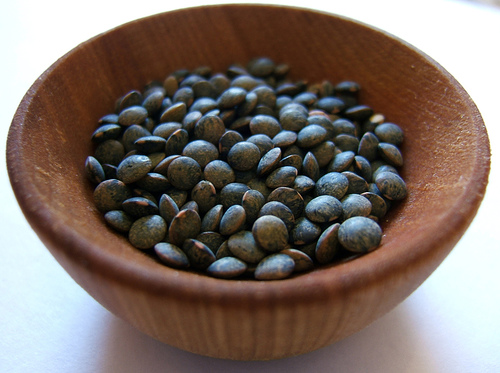Welcome back to my discussion on detoxification.
Before I continue with my next tip, I’d first like to cover off a few other areas that I didn’t mention in my last post.
As I mentioned previously, most of us could do with making some simple changes to our everyday diet that support the body’s natural detoxification processes, given the fact that we are exposed to so many toxins daily. Below is a list of tell-tale signs and symptoms that may further convince you that your body could use a little detoxifying action.
Indicators of a toxic body can include:
– Frequent headaches
– Chronic tiredness
– Excess weight
– Digestive disturbances
– Skin eruptions and rashes
– Frequent colds and flu
– Excess mucous production
A lot of people believe that just because they don’t have a diagnosed health condition or have specific symptoms that they are automatically healthy. But health isn’t just simply the absence of disease – health is a state of optimal well-being.
So many people are willing to accept feeling just “average” or “okay” on a daily basis, and many may take the list of symptoms mentioned above as just a part of the “natural” aging process.
The truth is, many people do not know how potentially great they could feel given the appropriate diet and lifestyle changes. Detoxification isn’t just about preventing or overcoming an illness. It can also bring about a level of vibrant health that you may never thought possible.
Benefits of Detox-ing
Here are just a few of the benefits you may experience as the body rids itself of excess toxins.
– Increased energy
– Improved digestion
– Glowing skin
– Reduced food cravings
– Weight loss (if you have it to lose)
– Enhanced physical and emotional wellbeing
Who wouldn’t want to experience even just one of these “side effects”??
So with that said, here is the next tip!
Tip # 2 – Increase Fibre to Feel Fabulous
I think most people have heard before that fibre is essential for intestinal health and keeping things moving through and eventually out of the body. Furthermore though, it is absolutely necessary in helping the body eliminate toxins.
Bile is manufactured in the liver where it acts as a carrier for toxins to be delivered to the intestinal tract before it is excreted out of the body via the feces.
There’s a catch though.
In order for the toxin-rich bile to actually be excreted out of the body, it needs to be absorbed by fibre first. This means if you’re not getting an adequate amount of fibre in your diet you are essentially re-absorbing all of those toxins back into your body and back into circulation. This is what is referred to as “autointoxication”. Up to 99% of bile can be reabsorbed if there is not enough fibre in the diet to aid in its excretion.
Now here’s a scary fact. The average person only gets a little over 10 grams of fibre per day. Ideally you should be getting at least 40 to 50 grams. This means that there are a lot of toxic (and constipated) people walking around!
Another great thing about fibre is that it adds bulk to the stool. This helps eliminate it faster and with less exertion. The amount of time it takes between eating a particular food and then excreting that same food via the feces is what is known as transit time. You can test your own transit time by doing a simple little test. This is what’s known as “the beet” test. Basically you eat some beets with a meal (they have to be fresh and not pickled) and then you wait and see how long it takes to see the remnants of the red colour in the toilet after having a bowel movement. For all you people who have never eaten fresh beets before, take this as your official “heads up”. Don’t be alarmed!
Ideally your transit time should be no longer than 24 hours. And if it is, you are likely constipated. Ideally you should be having at least 2 easy bowel movements (better yet 3!) per day. Unfortunately some people actually go that many times in an entire week (which is not normal regardless of what your doctor may have told you!). Constipation can wreak havoc on your health. Food that is left in your intestinal tract for an extended period of time can ferment and putrefy resulting in the production of a number of toxic by-products that create a breeding ground for harmful bacteria to proliferate. For this reason it is very important to keep things moving!
Tips for Increasing Fibre
1) Aim for 40-50 grams per day.
2) Increase your intake of fibre, especially the soluble variety. Soluble-fibre forms a gel-like substance when mixed with water and swells. This creates bulk and also acts as a “sponge” which absorbs bile and promotes its excretion. Sources include: oats, legumes (beans, lentils, peas), barley, fruits such as apples and pears, *psyllium husks and ground flax seeds.
* Note: Psyillium husks shouldn’t be taken by women who are pregnant or breast-feeding or by people with esophagitis

Photo credit – Flickr: dimnikolov

Photo credit – Flickr: wordridden
3) Increase your intake of veggies and fruits with the skin.
4) When eating grains always go for 100% whole grain with the fibre intact.
5) When increasing fibre (especially soluble-fibre) it is crucial to also make sure that you increase your water intake. Otherwise the end result will be counterproductive and can actually cause you to become (more) constipated.
There you have it.
Increase Fibre to Feel Fabulous!
Check back soon for Tip#3!

Hi! I’m Elaine, a Certified Nutritionist and Master Certified Health Coach. I support women in achieving their health and body goals while prioritizing a peaceful and balanced relationship with food.

Get a free copy of my handbook!
The Elegant Eating Handbook: Timeless Strategies for Lasting Weight Loss and a Peaceful Relationship with Food.
share with friends
keep reading...




